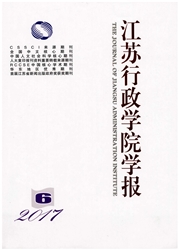

 中文摘要:
中文摘要:
在中国地方政府与社会组织关系方面,已有研究主要基于利益视角与社会网络视角。这两种理论视角,对地方政府与社会组织复杂关系具有一定的解释力,但也存在只能解释部分事实的情况。组织合法性理论综合考量了利益视角,并与社会网络视角具有内在联系,在一定程度上能够弥合二者的不足。组织合法性理论强调,地方政府对社会组织的选择性支持行为,受到社会组织合法性的影响,社会组织合法性越高越易获得政府部门支持。因此合法性较高的社会组织在发展过程中具有竞争优势。
 英文摘要:
英文摘要:
In the study of China's local governments and NGOs,the existing literature mainly focuses on two perspectives:interests and social networks. These two different theoretical perspective have certain interpretive capability on the complex relationship between local government and the NGOs, but they can only explain part of the facts. The goal of this paper is trying to introduce the perspective of organizational legitimacy to comprehensively investigate the interests perspective and link with the social network perspective,which can compensate for the shortcomings of those two perspectives to a certain extent. Organizational legitimacy theory emphasizes that local government's selective support for NGOs is influenced by the legitimacy of social organizations : the higher the legitimacy, the easier to get government support. Social organizations with higher legitimacy enjoy more competitive advantages in the development process.
 同期刊论文项目
同期刊论文项目
 同项目期刊论文
同项目期刊论文
 期刊信息
期刊信息
